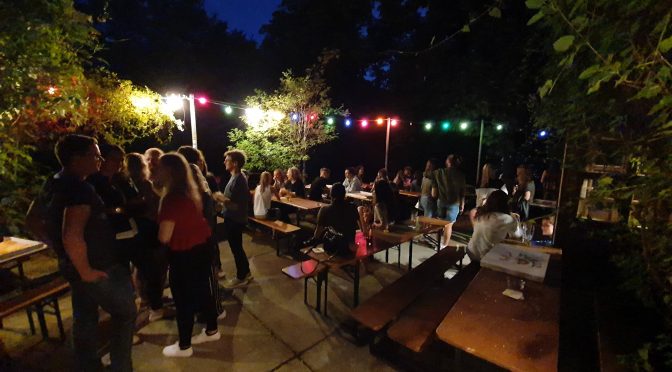Fighting Food Waste
Walking through a supermarket, you may notice the many shelves stocked with freshly baked bread, exotic fruits and barely one-day-old vegetables. Everything is organic – everything is green – everything is sustainable, at least that’s what the ads promise. What´s hidden from the customers’ eyes are the completely overstuffed bins, containing huge amounts of still edible food. Since we were children, we’ve been told that wasting food is wrong. So how is it possible that food waste is still an issue today?
Here’s the problem
Even today, 800 million people – one in nine – are starving or suffering from malnutrition. Each of them could be fed with less than a quarter of the food that’s wasted in the western world each year. Globally, it takes a space larger than China just to produce the amount of food that is never eaten. And full tables come at a high price: over the last few decades, our food supply system has been globalized, which has driven up the prices of food in developing countries. A quarter of all fresh water consumption is used to grow our food. No to mention issues like deforestation, the extinction of rare species and the forced movement of indigenous people. It’s quite easy to think of food waste as someone else’s problem, but truth be told, more than half of the food waste takes place in our private homes.
What’ s happening in our neighborhood?
Germans approximately throw away 45 million tons of food per year, around 55kg per person. The government has discussed various strategies to cut this down. The goal is to reduce this huge number by 50 % over the next ten years. National awareness campaigns are launched to highlight the level of food waste, as well as setting legal guidelines for supermarkets and restaurants, which are responsible for around 40 million tons in total. Consumers are supposed to be aware of the real importance of the best-before-date, which is misinterpreted by some as a tutorial on how to stay alive. One of the most important parts of the plan is directed at the food industry and regards packaging the food in much smaller, suitable quantities. In addition, experts recommend a traffic-light-style system, which could illustrate precisely whether food is still edible.
What could be done about it?
And then, there are legal issues: at the moment, possible food-providers have to be afraid of legal proceedings, in case their donations cause food poisoning or other diseases. There is also the problem of transportation. Supermarkets have to pay someone to transport their food to organizations like the Tafel, that ensure that surplus food from retail trade is collected and passed on to those in need. While Germany hasn’t worked out all the legal details yet, others have already taken action. France, for example, has banned supermarket waste, unsold food is to be donated to food banks or charities. In Denmark, supermarkets have to release information on how much of their produce goes to waste. Over 150 food companies in the UK have committed to the Food Waste Reduction Roadmap, implementing the Target – Measure – Act strategy, which provides businesses with steps they can take to reduce waste in their own supply chain. Germany still has a lot to do.
author: Dietmar Zombori


